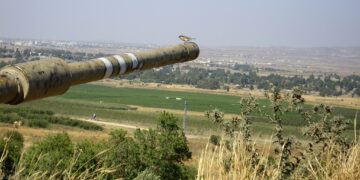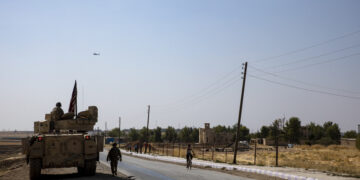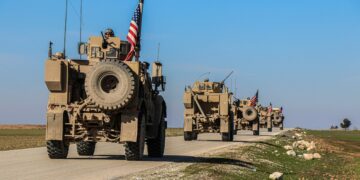December 21, 2018
ICYMI: Foreign policy realists applaud decision to withdraw troops from Syria
FOR IMMEDIATE RELEASE:
December 21, 2018
Contact: press@defensepriorities.org
WASHINGTON, DC—In case you missed it, Defense Priorities fellows and military experts have published several editorials applauding President Trump’s decision to withdraw U.S. troops from Syria.
As Benjamin H. Friedman and Justin Logan explained in USA Today:
Trump is right to accept victory in Syria. By September, ISIS had lost 99 percent of the territory its vaunted caliphate once held, according to a Pentagon Inspector General’s report. With the last vestiges of Islamic State territory in Syria falling to U.S.-backed forces in recent days, the goal that got the U.S. into Syria is achieved.
ISIS’s demise means there is nothing left worth fighting to win there. The risks of blundering into a war with a rival power are profound, and no possible benefit justifies them. We should not pay the costs of managing the end game of Syria’s civil war so that Russia and Iran do not. The Assad regime is winning its civil war, and supporting rebels merely prolongs the fighting and its tragic consequences. The United States is not obligated to fight for the Kurds or anyone else there. The decision to pull troops is the right one, however one feels about messenger and process that produced it.
Akhi Pillalamarri echoed these sentiments in The Los Angeles Times:
The administration’s move to get out of Syria, and consider a similar path in Afghanistan makes mission creep more difficult. Given the volatility of the Middle East, there will always be some reason or another to justify a U.S. troop presence in as many countries as possible, whether it is to protect Israel, Saudi Arabia, or the Kurds, push back against Iran or Russia, or fight some militant or terrorist group. Some of these goals are definitely worthy, but can be achieved through diplomacy, surgical strikes, or by working with America’s partners in the region. An expensive, open-ended U.S. troop presence in multiple Middle Eastern countries certainly isn’t necessary to protect our national security objectives.
Charles Peña goes on to debunk the recycled talking points of the foreign policy elite in The Hill:
What neoconservatives should be concerned about is the potential consequences of Russian intervention on behalf of Assad. Why should we run the risk of direct confrontation with Russia—the only country in the world with enough nuclear weapons to destroy the United States—over a regime in Damascus that does not pose a threat to our national security?
And while Sen. Graham is concerned that “[a]n American withdrawal will put the Kurds … at tremendous risk,” he should be more concerned about the American people he serves and the Constitution he is sworn to uphold—which is “to provide for the common defense,” not defending other people or countries.
Ultimately, the primary and overriding criteria for putting the U.S. military in harm’s way should be when U.S. national security is directly at stake. That has never been the case in Syria.
In The National Interest, Lt. Col. Daniel L. Davis concludes:
The president needs to override the Washington interventionists on this matter, because the overwhelming weight of evidence is on his side: there is no threat to America’s security that justifies the deployment of lethal military power, there is great strategic risk for our country because of the still-burning civil war there, and as important, it has never been authorized by Congress.
It’s important to note that the troops in Syria were originally sent there by the Obama Administration for the purpose of helping the Kurdish-led Syrian Democratic Forces drive ISIS from their so-called ‘capital’ of Raqqa. That mission was successfully completed in October 2017.
More on Syria

By Daniel DePetris and Rajan Menon
July 17, 2025

Featuring Rosemary Kelanic
July 15, 2025
Events on Syria










